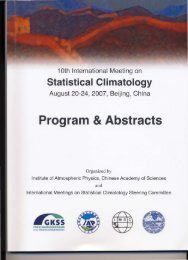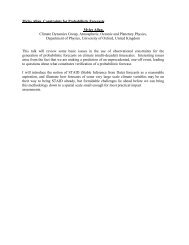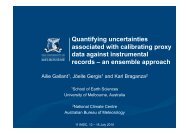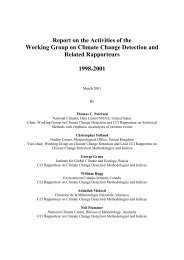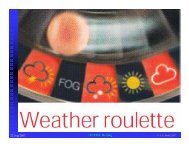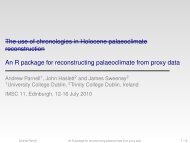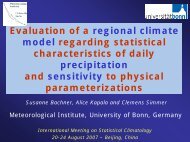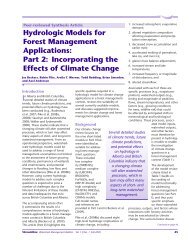The tenth IMSC, Beijing, China, 2007 - International Meetings on ...
The tenth IMSC, Beijing, China, 2007 - International Meetings on ...
The tenth IMSC, Beijing, China, 2007 - International Meetings on ...
You also want an ePaper? Increase the reach of your titles
YUMPU automatically turns print PDFs into web optimized ePapers that Google loves.
different time periods. <str<strong>on</strong>g>The</str<strong>on</strong>g>re are negative temperature trends from 1945 to 1970; all other time<br />
periods show positive trends. In additi<strong>on</strong>, several abrupt changes in temperature were<br />
detected respectively in the year 1937, 1913, 1986 and 1949.<br />
An Automated Synoptic Weather Typing and Its Applicati<strong>on</strong>s to Climate Change Impact<br />
Analyses<br />
Speaker: Chad Shouquan Cheng<br />
Chad Shouquan Cheng<br />
Meteorological Service of Canada Branch, Envir<strong>on</strong>ment Canada<br />
cheng@ec.gc.ca<br />
<str<strong>on</strong>g>The</str<strong>on</strong>g> synoptic weather typing approach has become popular in evaluating the impact of<br />
climate <strong>on</strong> a variety of envir<strong>on</strong>mental problems. One of the reas<strong>on</strong>s is its ability to categorize a<br />
complex set of meteorological variables as a coherent index and to facilitate to link with<br />
high-impact weather analyses. In a series of studies, an automated synoptic weather typing<br />
was developed using principal comp<strong>on</strong>ents analysis, average linkage clustering procedure,<br />
and discriminant functi<strong>on</strong> analysis to classify daily weather types. Meteorological data used in<br />
the weather typing usually include hourly/six-hourly surface observati<strong>on</strong>s of air temperature,<br />
dew point temperature, sea-level air pressure, total cloud cover, and west-east and<br />
south-north wind velocities. <str<strong>on</strong>g>The</str<strong>on</strong>g> weather typing approach was validated using an independent<br />
dataset (1/4–1/3 of the total years) that was randomly selected.<br />
This talk will focus <strong>on</strong> development and validati<strong>on</strong> of the synoptic weather typing and its<br />
applicati<strong>on</strong>s to a variety of high-impact weather analyses, such as freezing rain, heavy rainfall,<br />
high air pollutant levels, and extreme temperature/air polluti<strong>on</strong>-related premature mortality. In<br />
additi<strong>on</strong>, this talk will summarize how the weather typing was applied, using downscaled GCM<br />
climate change scenarios, to project changes in frequency and magnitude of future<br />
high-impact weather events.<br />
Answering questi<strong>on</strong>s about empirical downscaling methodologies<br />
Speaker: Bruce Hewits<strong>on</strong><br />
Bruce Hewits<strong>on</strong><br />
University of Cape Town<br />
hewits<strong>on</strong>@csag.uct.ac.za<br />
R Wilby<br />
UK Envir<strong>on</strong>ment Agency<br />
36



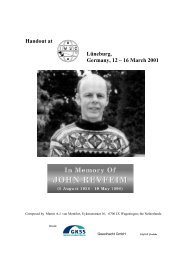
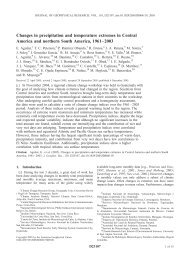
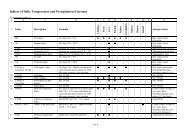
![final_program_abstracts[1]](https://img.yumpu.com/19102520/1/174x260/final-program-abstracts1.jpg?quality=85)
